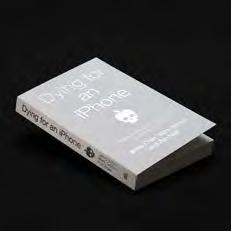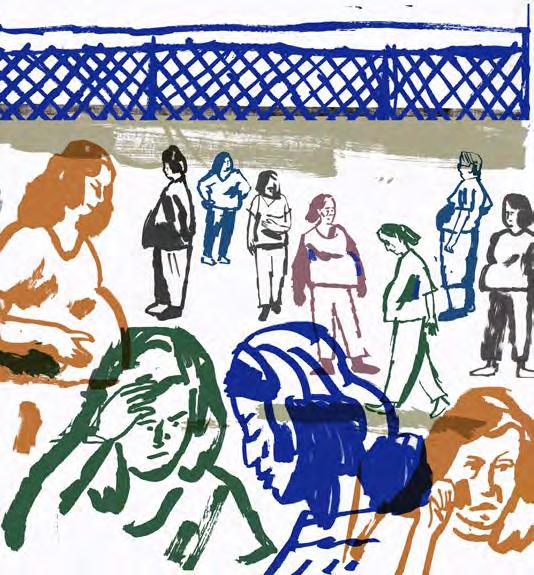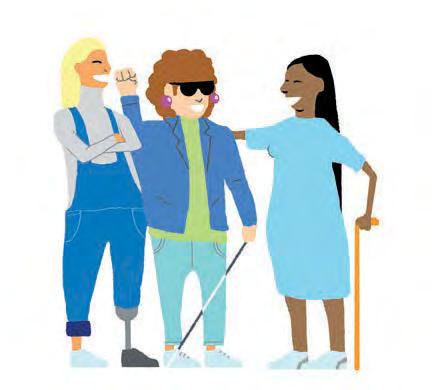
4 minute read
Independent Monitoring Boards: Black, Asian and minority ethnic women in prison
Independent Monitoring Boards want to know about the experiences of Black, Asian and minority ethnic women in prison
Ever wondered what an Independent Monitoring Board (IMB) is meant to do? Head of Policy at the IMB Secretariat, Sarah Clifford, explains this and all things IMB-related, from their roles and responsibilities to their upcoming project for Black, Asian and minority ethnic (BAME) women that they need your help with.
Advertisement
What is the role of IMBs?
In every prison and immigration removal centre across England and Wales, there is an Independent Monitoring Board (IMB) that monitors life in prison to ensure people inside are being treated in a fair, humane and dignified manner.
IMBs are appointed by government ministers, but they are independent of the prison system and are unpaid. IMBs have unrestricted access to prisons and can access almost all information relating to a particular establishment.
IMB members also deal with complaints and requests. For example, if an individual in prison is experiencing an issue, they can put in a confidential request to see a member of the IMB, without involving or informing prison staff. IMB members have an obligation to respond to all requests, whether in person, over the phone or in writing.
Why are IMBs important? IMBs monitor prison conditions and investigate what life in prison is really like; they report their findings to ministers annually, making recommendations for changes to the prison. The report is published online and made available locally via the prison library so that anyone can access it.
IMBs also relay information to the public and press about what is happening in the prison, especially if they have concerns.
What projects have IMBs in the women’s prisons been working on?
The IMBs in the 12 women’s prisons in the UK have been working together to identify key problems across women’s prisons and to press the prison service for action. Recently, a group of ten IMBs conducted a survey of women in their establishments to find out where they were moving to upon release. The report, which was published in August 2020 and is available from IMBs locally, indicated that almost 60% of women did not have a home to return to and faced sofa surfing or temporary hostels to avoid being on the street. The report received national coverage and raised awareness of the issue across the wider public and the government.
‘A recent report indicated that almost 60% of women did not have a home to return to and faced sofa surfing or temporary hostels to avoid being on the street.’
‘If an individual in prison is experiencing an issue, they can put in a confidential request to see a member of the IMB, without involving or informing prison staff.’
What projects do IMBs in the women’s prisons have coming up?
IMBs in the women’s estate are now working on a collaborative project with the Criminal Justice Alliance (CJA), a coalition of more than 160 organisations committed to improving the criminal justice system. The IMBs plan to carry out a nationwide survey of Black, Asian and minority ethnic women in prison, including members of the travelling community and migrant women. We want to find out about your individual experiences, and what you think needs changing to improve the treatment of Black, Asian and minority ethnic women in prison.
The CJA will carry out a project at the same time surveying IMB volunteers to understand how we can better monitor the experiences of Black, Asian and minority ethnic women and ensure there are enough Black, Asian and minority ethnic members on IMBs. We aim to publish the findings in a report in early summer 2021.
The survey is currently underway, but we need to hear from Black, Asian and minority ethnic women with lived experience of the prison system. We want to know one thing you would change to improve conditions for Black, Asian and minority ethnic women in prison.
Please send your suggestions, along with a completed consent form (see page 63), to FREEPOST – WOMEN IN PRISON. Your ideas will inform the survey’s questions once it goes live.
Please look out for the survey in the next few months. We encourage you to fill it in, and would be grateful if you could encourage others to do the same. We desperately want to understand your experiences and views, and promote your ideas for change with the government and the wider public.










